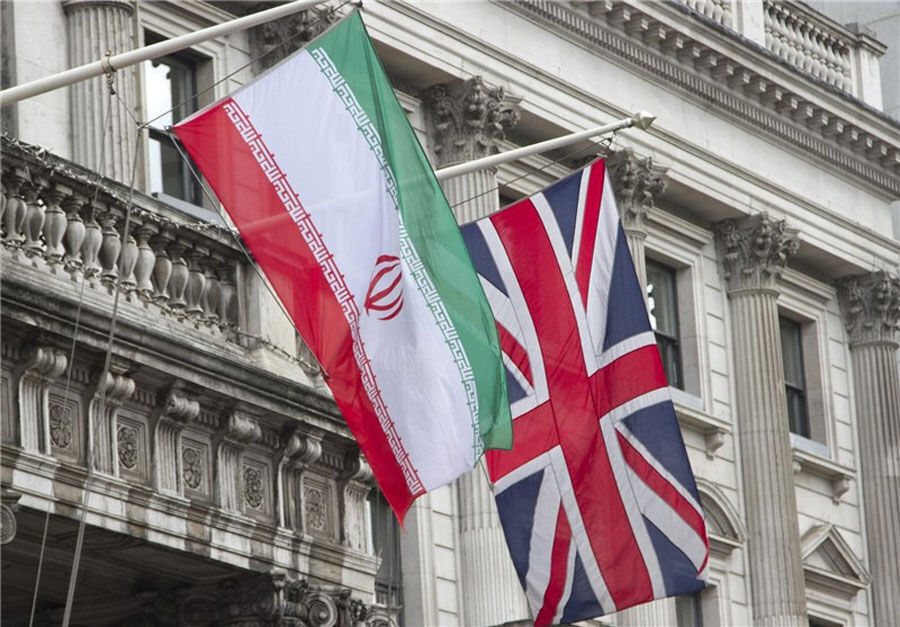Speaking in an interview with the website of the Strategic Council on Foreign Relations, Morteza Makki stated: Iran’s relations with Britain have always been associated with ups and downs and certain political complexities as such that both in Britain and in Iran, this issue is viewed with special sensitivity.
Referring to the background of British interventions and the negative role of Britain in Iran, he explained: Britain does not have a good record in view of the Iranian people and the British colonial view of Iran from the past, especially since the Qajar era and the discovery of oil in Iran has made Britain to have a very negative role in the process of political developments in Iran.
According to Makki, this negative role was well observed during the constitutional process; at that time, the British openly tried to divert the political developments in Iran and bring the constitution to a standstill.
The expert on Europe affairs continued: Reza Khan’s policies reaching a deadlock was also the result of British anti-Iranian policies in Iran, and finally we saw the overthrow of Reza Khan and succession of Mohammad Reza in order to maintain British domination and influence in Iran.
He said that nationalization of the oil industry was also done in order to counter British domination and influence, while the coup d’etat of 9 August practically caused Mohammad Reza to rule Iran with an authoritarian policy and this policy ultimately with the struggle and resistance of the people ended into the Islamic Revolution.
Commenting on London’s policies toward Tehran after the Islamic Revolution, Makki said: After the victory of the Islamic Revolution, Britain continued to play a destructive role in the face of the Islamic Revolution, and its support for separatist and counter-revolutionary groups and currents is an example of London’s policy towards the Islamic Republic of Iran.
But according to the expert on Europe affairs, the four rounds of British Foreign Secretary Jack Straw’s visit to Tehran amid the US-British invasion of Iraq in 2003 show that Britain was well aware of Iran’s position and role in the political equation of the Middle East and the Persian Gulf and was seeking to use this position and role to advance its policies.
Commenting on London’s policy, Makki explained: Even after the attack on the British Embassy in Tehran, London tried that such measure would not have a long-term impact on political relations with Iran. That is, while countries such as Canada cut off diplomatic relations with Tehran following the attack on the British Embassy in Tehran and have not yet been able to repair their relations with Iran and are influenced by political currents opposed to the Islamic Republic of Iran, Britain by repairing its political relations with the Islamic Republic of Iran and sending of an ambassador to Tehran showed that it wanted to play the role of a political actant active in the Persian Gulf region and use the maximum opportunities to advance its regional policies.
Saying that after the Brexit, Britain is trying to play a more active and independent role than the European Union in the Persian Gulf region, that is, its traditional sphere of influence, he added: The issue of reviving British bases in the Persian Gulf is in this line.
According to the expert, it is very likely that in case of the revival of Joint Comprehensive Plan of Action (JCPOA), London, like other European capitals, will try to make the most of the situation of reviving the JCPOA to strengthen cooperation with Iran.
Referring to the impact of London-Washington relations on Tehran-London relations, the expert on Europe affairs said: British-American relations are very broad and close, and during the JCPOA negotiations, Britain, unlike France, tried to play an effective role in the process leading up to the JCPOA agreement, while aligning with the Barack Obama administration. Now that Joe Biden has come to power in the United States, Britain’s alignment with the United States is certainly greater than London’s alignment with Trump’s America, and Britain, like the United States, sees the revival of the JCPOA as more effective in its Middle East policies.
He continued: Nevertheless, Britain, like many other countries under Obama and Trump, supported widespread sanctions against Iran.
Makki concluded by emphasizing that Britain is always trying to have a critical relationship with the Islamic Republic of Iran, saying that this critical relationship is part of the fearful policies pursued by the United States and European governments over the past few decades.
He added: Supporting the political currents that oppose and criticize the Islamic Republic of Iran and raising various issues inside Iran, which can turn into a psychological war by the British media against Iran, to some extent shows the diplomacy of the British media against Iran. However, within the framework of this critical policy, the British also seek to create opportunities so that they can maintain good relations with regional governments and sell arms to those countries, as well as maintain political relations with Iran and play an effective role in Iran’s developments with the West. On the other hand, given the British politico-economic situation after leaving the European Union and the problems it will face, strengthening cooperation in various fields with Iran with its high potential is a great opportunity for the British government. Therefore, it is necessary for the Iranian side to take advantage of this opportunity vigilantly to regulate balanced and favorable relations, while taking into account the above-mentioned points.










0 Comments